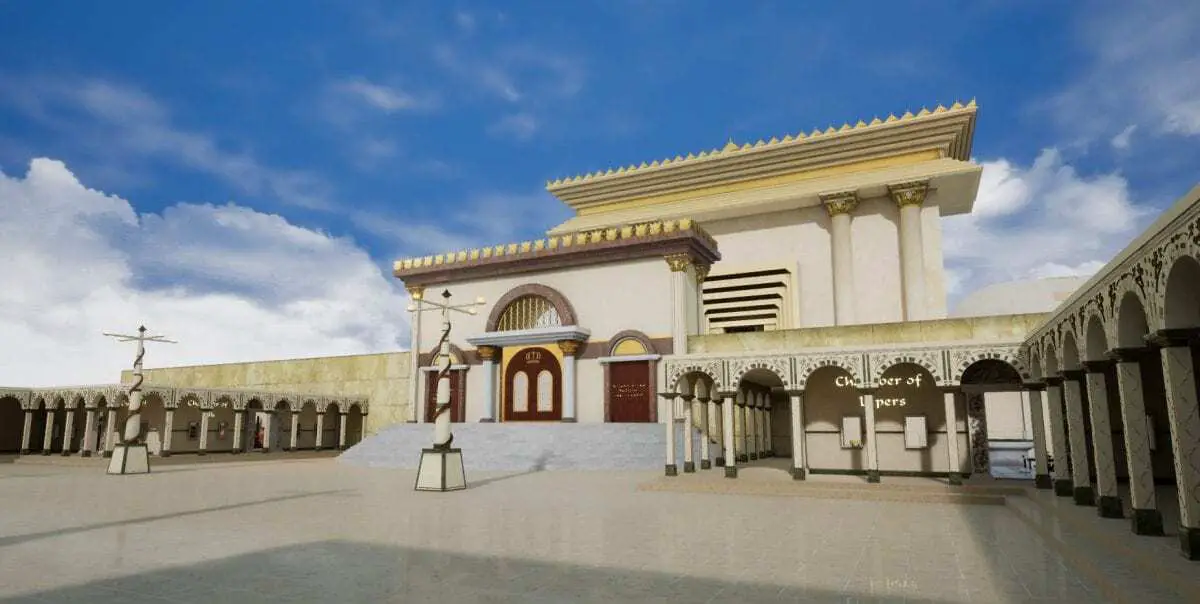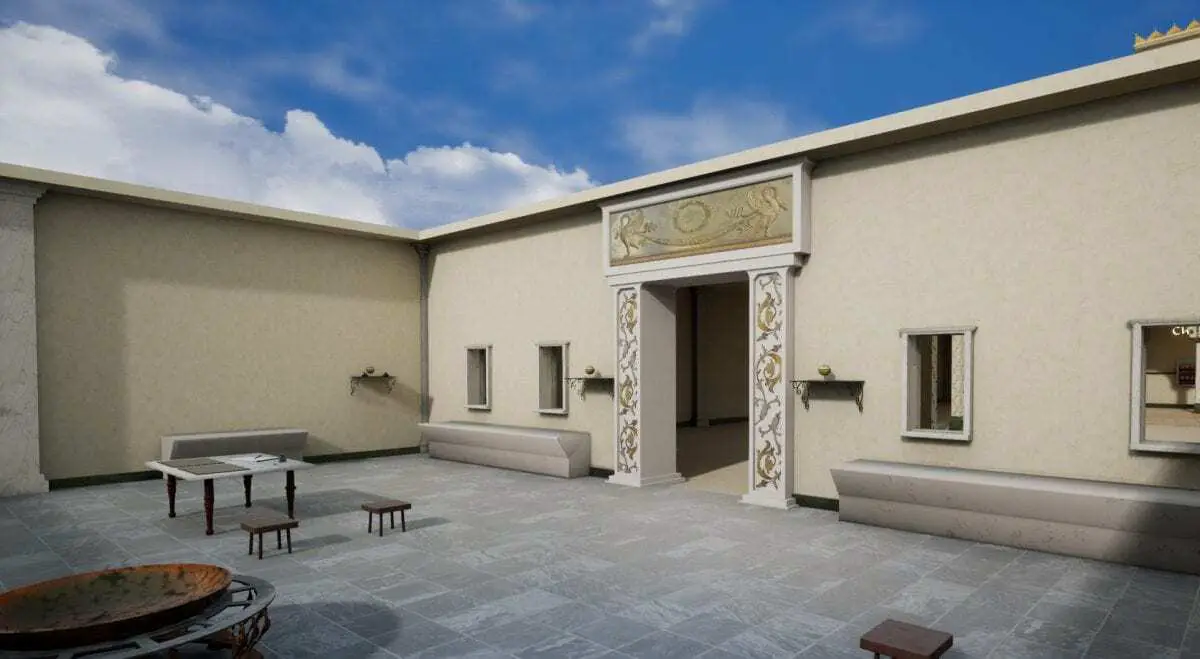Herod’s Temple is actually a reconstruction and continuation of the second temple, that Under Herod began a massive expansion of the Temple Mount.
Religious worship and temple rituals continued during the construction process. When the Roman emperor Caligula planned to place his own statue inside the temple, Herod’s grandson Agrippa I was able to intervene and convince him against this.
Herod’s Temple was one of the larger construction projects of the 1st century BCE. Josephus records that Herod was interested in perpetuating his name through building projects, that his construction programs were extensive and paid for by heavy taxes, but that his masterpiece was the Temple of Jerusalem.


The architect behind the game’s construction, Shahaf Shaked said:
“Developing Herod’s Temple 1.0 took roughly six months. As I only started learning modelling and game development with this project, about 80% of the time invested in this recreation was spent going back and fixing errors.
Although I am a Bachelor of Archaeology of Ben-Gurion University, I took a conscious decision to do this project as an enthusiast rather than as an archaeologist for the sake of expediency and the freedom to simplify the models in order to make the game playable on older machines (which is why it was also compiled in 32-bit and not 64-bit).
The game was built inside the Unreal Engine. It is and will continue to be a work in progress for as long as I can help it. It is 100% free for educational and individual use.”
Download the Temple Game – English
Download the Temple Game – Hebrew




